As the world converged to commemorate International Museum Day on May 18, 2024, RGL brought together key stakeholders to have open dialogues on the theme “Museums and Decolonisation within the context of Neocolonialism.” Derived from the main theme of the day, “Museums for Education and Research,” the event focused on African museums and museum practices with a focus on African Heritage.
Museums have long been known for their multiple purposes—to curate and preserve, research, and reach out to the public- but they also challenge us and permit us to question our assumptions about the past or the world around us. During the four-hour-long dialogue with about 50 stakeholders from all walks of life, including students, Academia, artists, museum practitioners, and art and culture practitioners, the conversations opened for perspectives on the role of museums within the African continent, Afrocentric practices in African Heritage Management as part of the decolonization process, and the empowerment of traditional cultural spaces which are more inclusive.
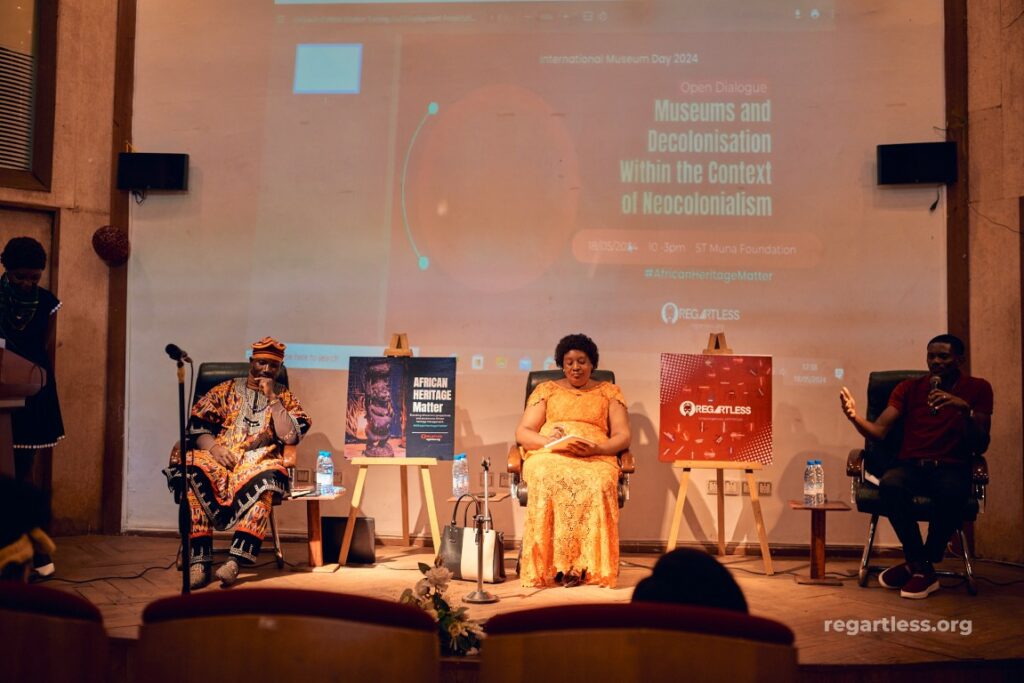
Panelist Key messages
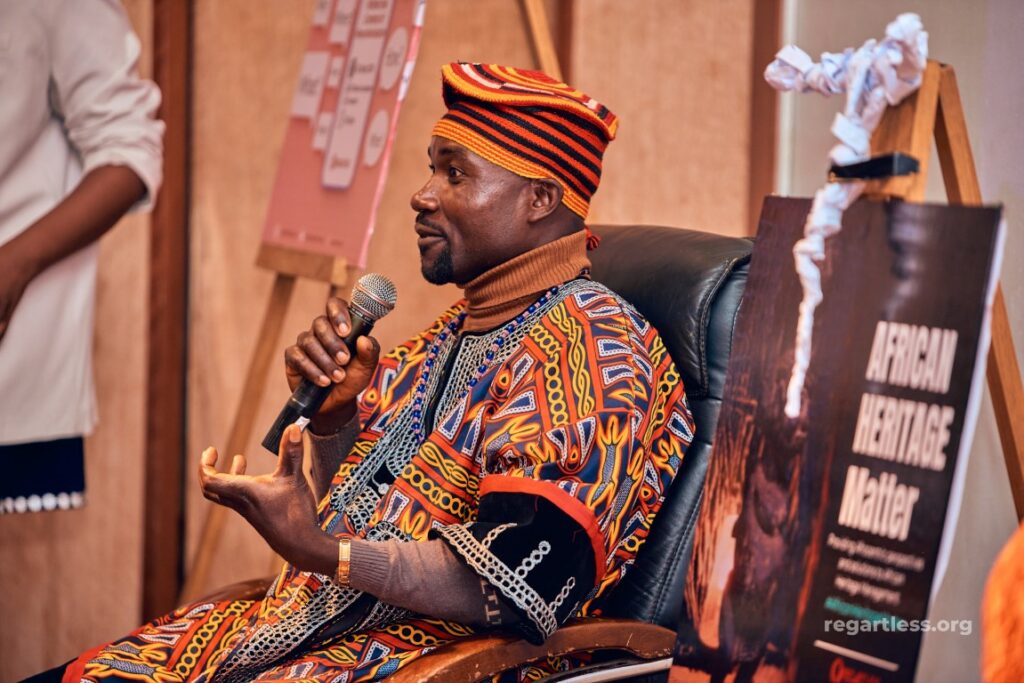
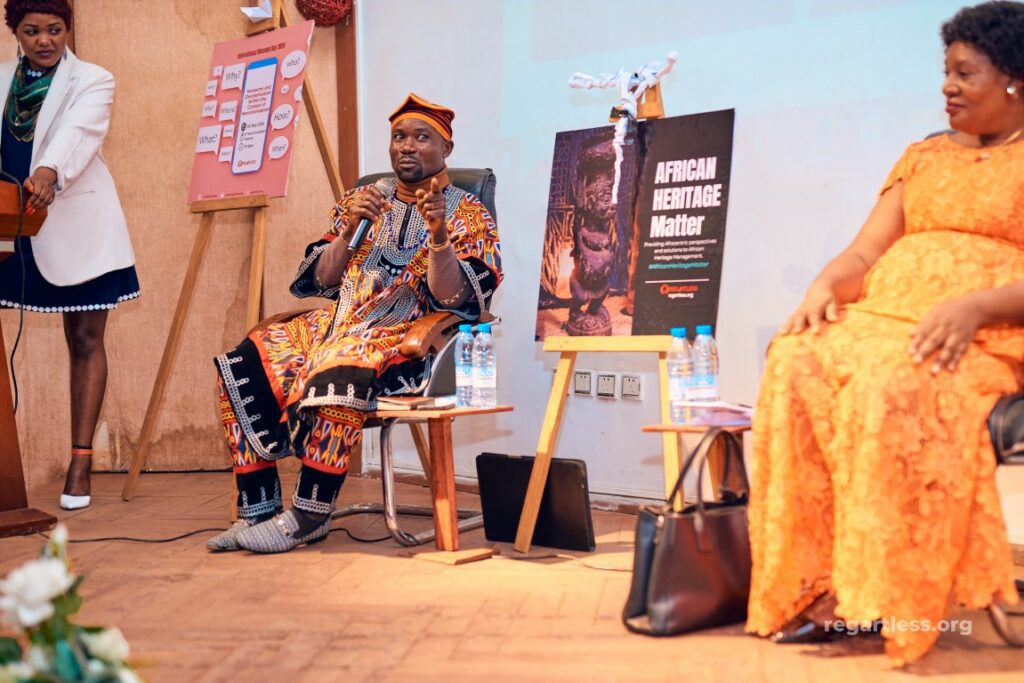
Elijah Ngong – Carver, a museum practitioner
Sustainability of African heritage in pre and post-colonial era.
“As a carver with more than 30 years of experience, I believe that Africa has what it takes to safeguard its heritage from creation to whatever life span we decide to give it. I have carvings that are almost 30 years old, and I have never used any imported products to take care of – either old-aged techniques in preserving wood-based heritage or using natural herbs. We are sitting on a wealth of knowledge and resources, and all it takes is awareness and sustainable knowledge documentation and transfer systems, but first, it must start with decolonizing mindsets of Africans – we are more than enough. Finding African solutions to our problems is not only socio-politically empowering but also economically viable.”
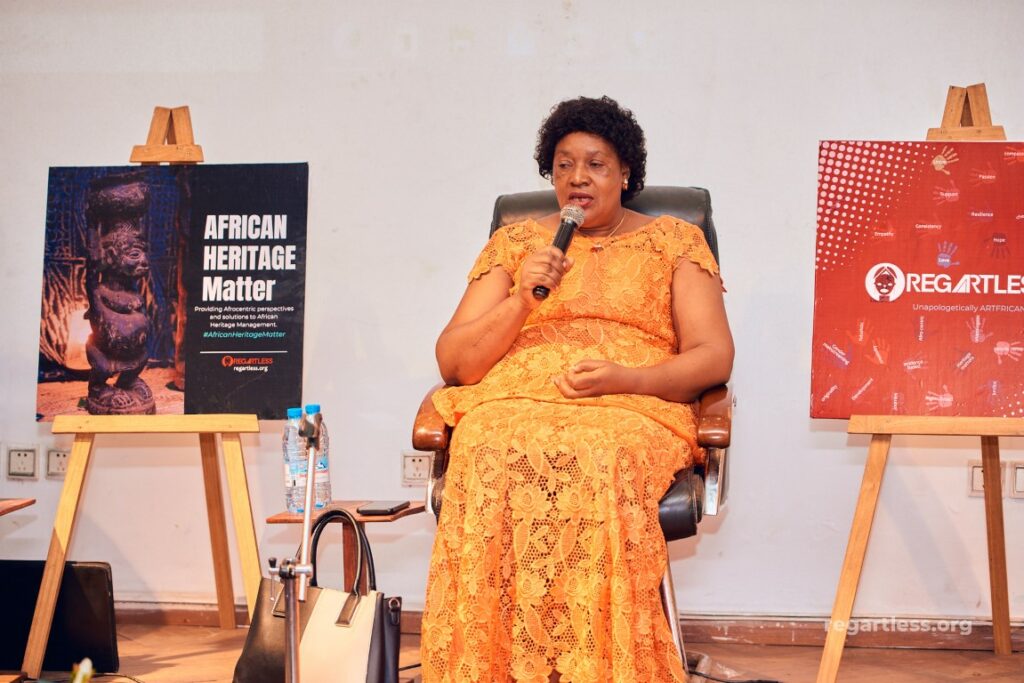
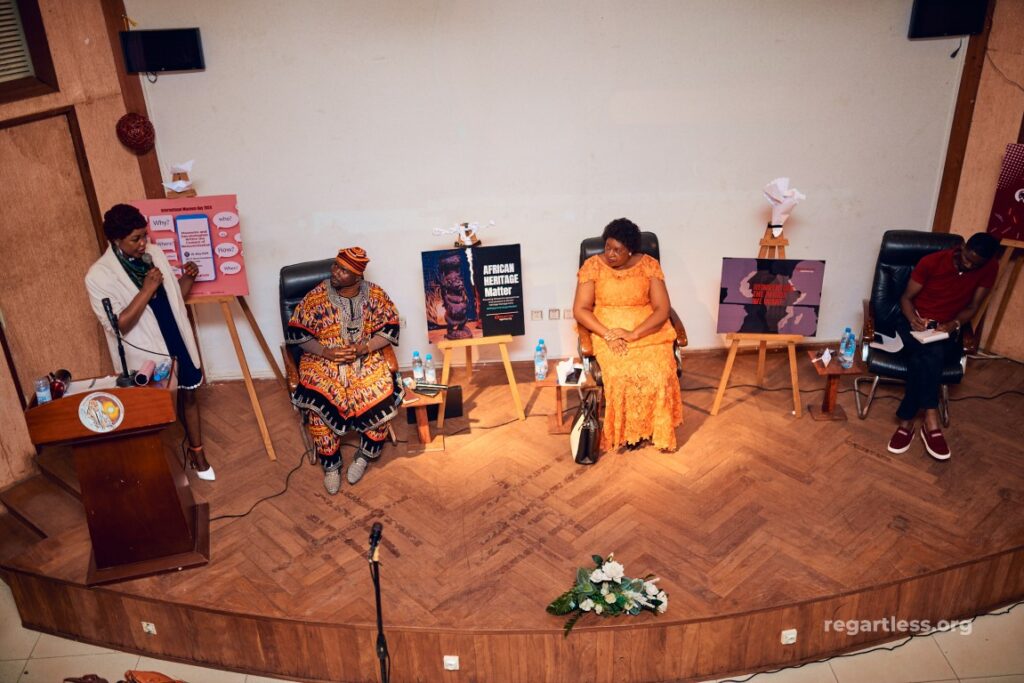
Dr Mbuh Dora – University Lecturer, African Literature – University of Yaounde 1.
Can museums and traditional cultural spaces find a common ground?
“Traditional Cultural spaces serve similar purposes as museum spaces – spaces of learning and exchanges. However, in the context of Africa, traditional cultural spaces are also heritages that need to be protected and promoted more than we are doing now. The need for us to tell our stories the way we want, to whom we want, where, and when is taken away from us by museum spaces. We must ask ourselves the key questions of stewardship and agency. Who has the right to tell our stories? In the process of museums becoming what we commemorate today, there are underlying tones that must be addressed – extractivism, control, power, and access. We must rethink and revalue our cultural spaces, these are the only places where the interests of communities are protected. If museums and traditional cultural spaces must find common ground, we must go back to the drawing board and start having conversations like we do today.”
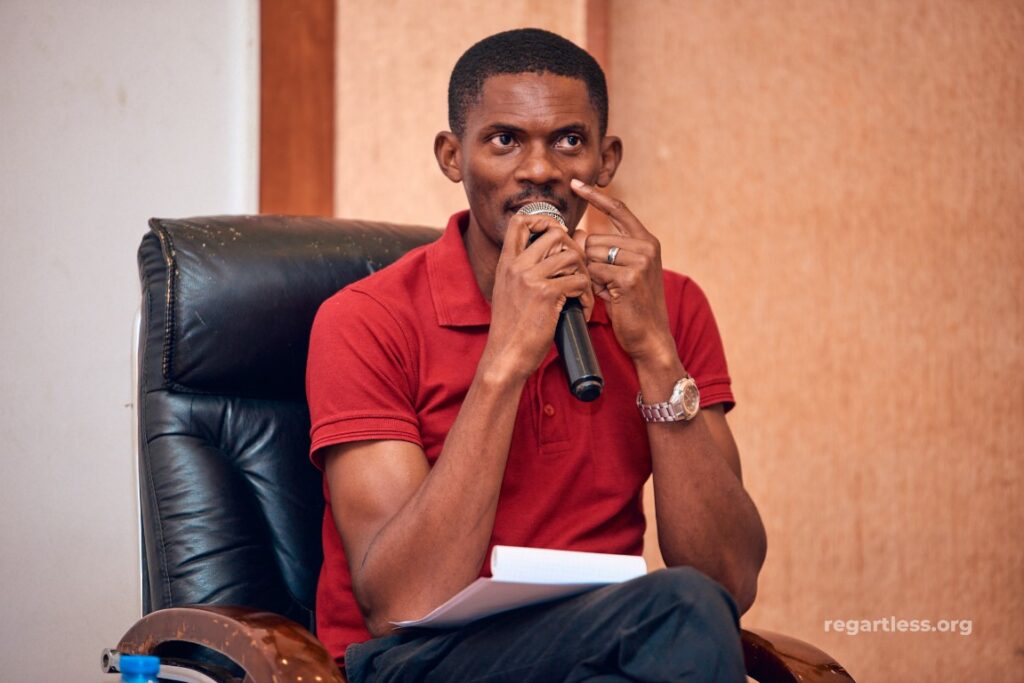
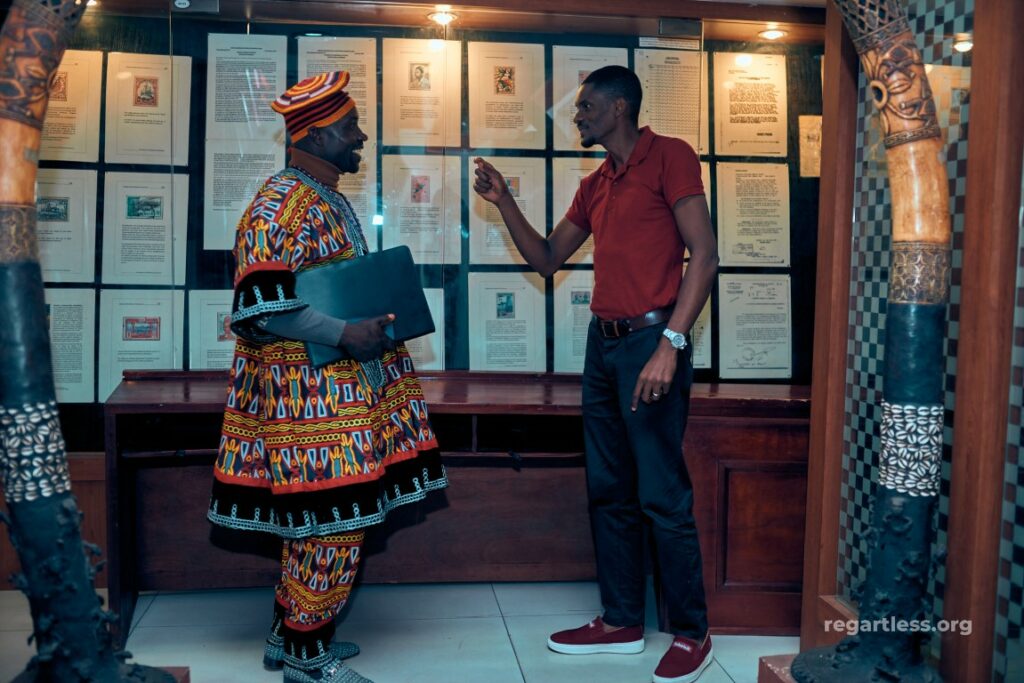
Ndika Tanjong – Director of ST Muna Foundation/museum
Museums are necessary spaces in today’s world not because they are museums but because of critical factors such as purpose. At the ST Muna Foundation’s museum, we constantly challenge ourselves to the evolution of life and culture while staying true to our mandate and identity as a people-centered space of reflection, reconnection, and even disconnection. Museums have come under a lot of scrutiny in recent times, and rightfully so. Critical questions we are asking ourselves are how we can continuously do things differently, ethically and inclusively, what we are keeping in our collections, how these contribute to the different global and local agendas that serve the African continent, and what legacies we leave behind. These open-ended points of reflection are our starting point for growth and other museums are encouraged to reflect this way. Like I like to say, an exhibition is not the end but the beginning of a journey into the complexities around each exhibition.
Creative Games
An engaging audience made this day incredibly successful, contributing to the decolonization of African spaces through the gender lens, exhibition curation, storytelling, sustainability, and originality. A recurrent theme in this conversation was the question of restitution of Africa’s heritage looted in colonial context, most importantly highlighting the need to protect what we have left back.
With the diversity in the house, participants were separated into three main groups for an exercise on storytelling, curating what matters to us, and displaying, all from inward perspectives. Participants were given clean sheets of paper to use their creativity and no other tools to create and display one piece of work. Each team was led by a panelist. Time allocated – 15 minutes
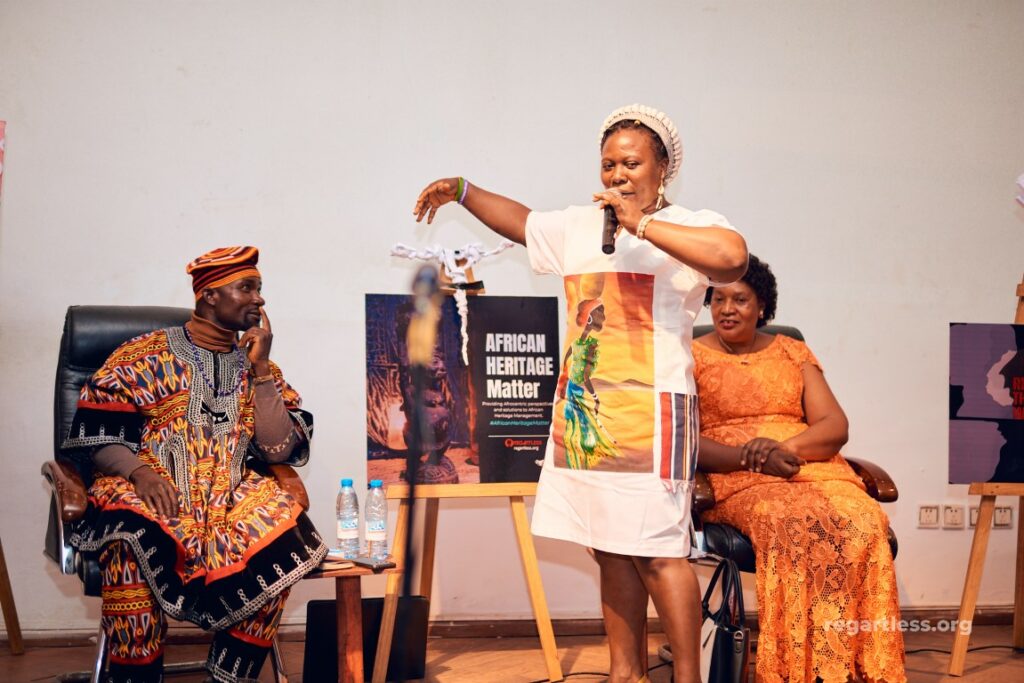
Team A
From a distance, one would think it is a cross on which Jesus was crucified. Still, when Nnane Ntube, a teacher and writer took to the stage to interpret this group’s creation, everyone was intrigued – A fallopian tube that depicts the motherland and the journey to humanity.
Team B
The canoe/boat created by this incredible team and displayed on the exhibition stand depicts the journeys through life, especially for Africans, from the transatlantic slave trade to where we are today.
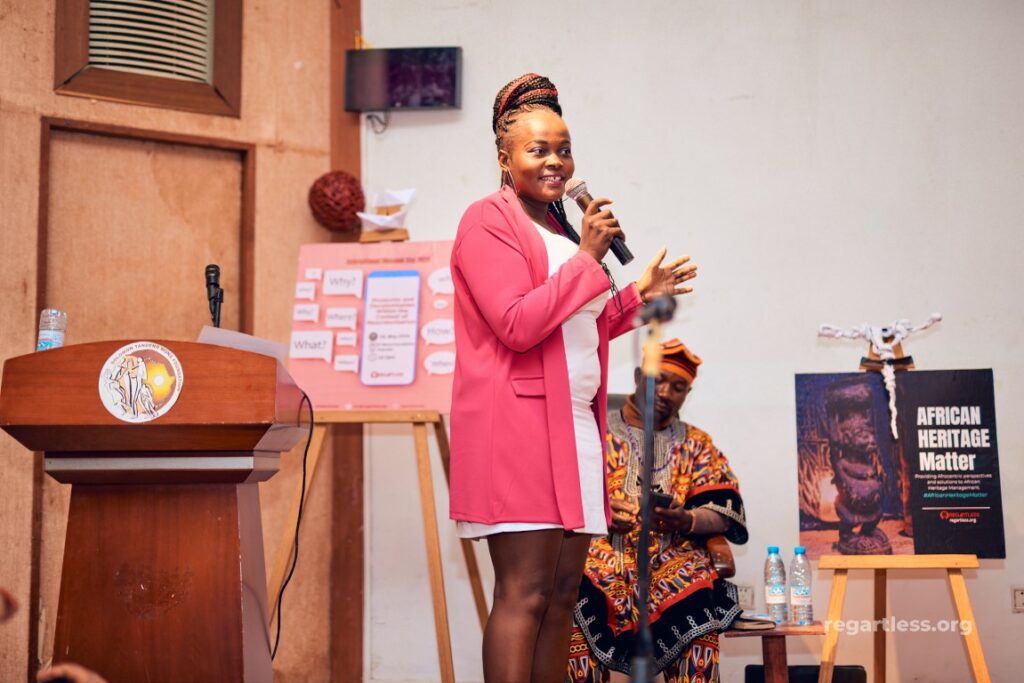
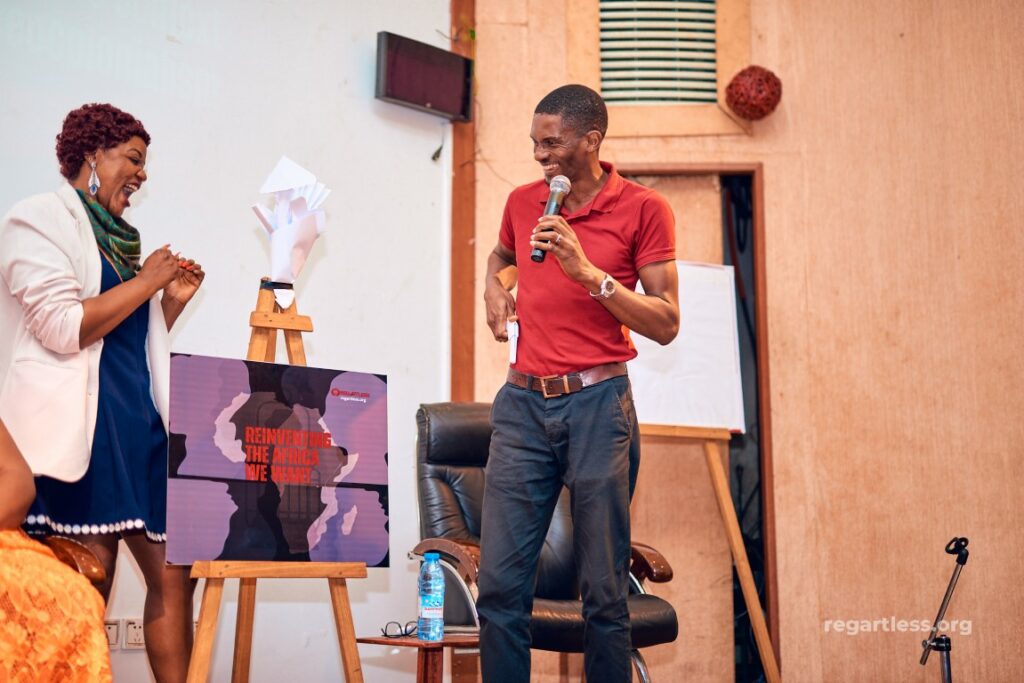
Team C:
Led by Tanjong, the team produced a cone of multiple objects that can be found in the museum depicting different cultures. From a cone depicting a traditional drinking horn peculiar to the grass field region of Cameroon to bracelets and fans, the exhibition style was quite relatable and creative.
Recommendations.
Participants and panelists together recommended the following.
- Nation convening of all stakeholders on the cultural policy of Cameroon, factoring in the AU Cultural policy.
- More convenings with young people to bridge the gap between decolonization and African heritage management
- Researching, testing, and documenting local solutions to African Heritage management.
- Inclusion of communities in exhibitions.
- Developing a culture at risk center that can temporarily harbour heritage at risk from either wars, natural disasters etc.
Conveners
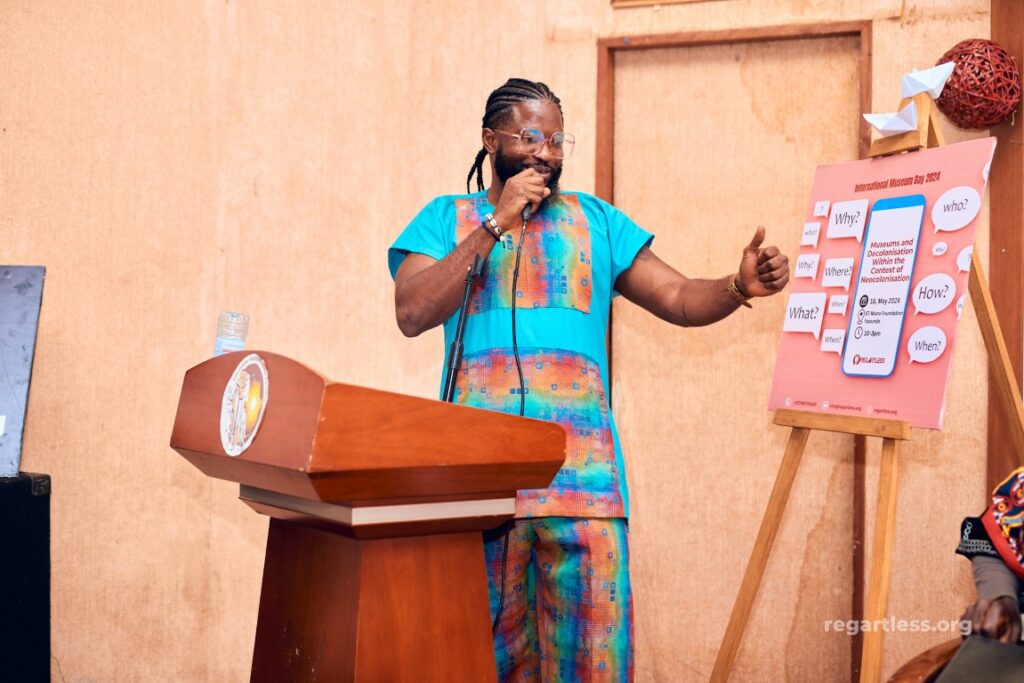

Anyi Okoro is the Director General of REGARTLESS and the co-convener of the open dialogue.
“Our job as an organization is to inspire conversations like this. There will always be a question of agency: Who has the right to do what? But there is one thing you can always do: You do not need agency to be human. As you leave here today, remember humanity is our collective heritage.”
Sylvie Njobati is the Founder /President of REGARTLESS and co-convener of the dialogue
“Decolonising museums is not a mere intellectual exercise but a moral imperative. It calls upon us to confront uncomfortable truths, learn and unlearn, and recognise the ongoing structural injustices that persist in the neocolonial world order. It is a call to action to dismantle the hierarchies, biases, and Eurocentric narratives that have shaped museum collections, interpretations, and outreach.”


